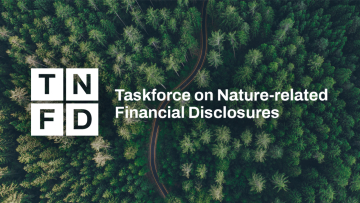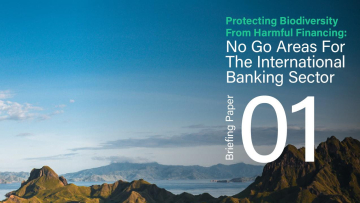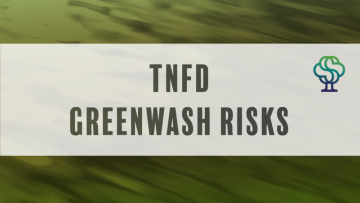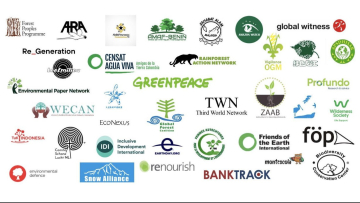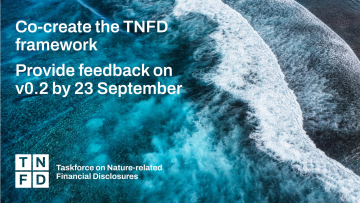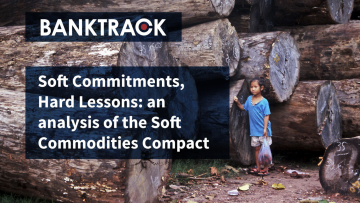Biodiversity and nature finance initiatives

EU Finance @ Biodiversity Community and the Finance for Biodiversity Pledge
The Finance and Biodiversity Community has been running since 2016 and provides a "forum of dialogue" where financial institutions can share experiences and raise awareness for biodiversity in mainstream financial activities. It aims to promote the learning and implementation of strategic and practical best practices on EU level on how to foster investments in natural capital. The Finance and Biodiversity Community counts more than 30 member institutions among them ABN Amro, ASN Bank, GLS Bank and ING.
In 2020 the Finance for Biodiversity Pledge was launched by the Finance @ Biodiversity community. The Pledge calls upon global leaders to commit to protect and restore biodiversity through their finance activities and investments by collaborating and sharing knowledge, engaging with companies, assessing impact, setting targets and reporting publicly on this before 2025. As of 2021, 89 financial institutions representing 19 countries, including nine commercial banks, have signed the Pledge. More information on the Pledge can be found in the guidance document.
Natural Capital Finance Alliance
The Natural Capital Finance Alliance (NFCA) aims to connect actors of the financial sector to manage the risks of environmental impacts. They refer to natural capital as a way of thinking about nature as a stock that provides benefits to people and the economy and argue thatenvironmental impacts like climate change andchanges in legislation can cause risk to natural capital. By providing knowledge and tools, the NFCA wants to create a set of guidance on how to incorporate environmental risks in investment and insurance decision-making. The Alliance and its Secretariat was orginally formed to support the signatories of the Natural Capital Declaration (NCD), which was launched in 2012 and has been signed by more than 40 financial institutions. The Declaration “formalises their commitment to the integration of natural capital considerations into financial sector reporting”. The NFCA is led by a Steering Committee, including representatives from YES Bank, National Australia Bank, and UniCredit, that functions as a decision-making governance body of the NFCA.
Partnerships for Biodiversity Accounting Financials
The Partnership for Biodiversity Accounting Financials (PBAF) is an independent foundation based in the Netherlands and a sister-initiative of PCAF (the Partnership for Carbon Accounting Financials). Their primary objective is to develop the PBAF Standard, which provides financial institutions with practical guidance on biodiversity impact and dependency assessments and defines what is needed in order for these assessments to deliver the right information to financial institutions. With this information financial institutions can effectively manage and report on biodiversity related risks and opportunities and contribute to the conservation and sustainable use of biodiversity. Development of the Standard started in 2019 and as of February 2022, it is supported by 30 financial institutions, including seven commercial banks. The first version of the PBAF Standard was presented in 2020 with further guidance, definitions, principles and requirements expected to be published in the first half of 2022.
Soft Commodities Compact
The Soft Commodities Compact (SCC) describes itself as a “unique, company-led initiative that works with the banking industry to help transform soft commodity supply chains and help the banks’ clients (companies) achieve zero-net deforestation by 2020”. It was launched in 2014 by the Consumer Goods Forum (CGF) and the Banking Environment Initiative (BEI) and was adopted by 12 banks. Compact banks made two commitments. First, compact banks aim to transform soft commodity supply chains to explore how they can finance the growth of the markets producing palm oil, timber products, soy and beef to the CGFs required net zero deforestation standards. Second, compact banks will work towards raising industry-wide banking standards through increasing their own due diligence processes by prioritising the establishment of internal mechanisms so as to ensure operations are consistent with internationally-recognised means of verification.
As outlined in our report, “Soft Commitments, Hard Lessons”, by 2020 none of the 12 compact banks met these commitments. More fundamentally, the world has not made progress towards halting forest loss, and the global commodities supply chains remain a major driver of this loss. Six years of the SCC sadly failed to contribute towards the objective of ‘zero net deforestation’, and has shown that a 'zero net' goal, and a reliance on certification schemes as the primary means to get there, are inadequate to the task of ensuring banks provide finance in a manner that protects the world's forests.
Taskforce on Nature-related Financial Disclosures (TNFD)
The Taskforce on Nature-related Financial Disclosures was launched in June 2021 and aims to develop a risk management and disclosure framework for organisations to act on nature-related risks. Their mission is to promote a “shift in global financial flows away from nature-negative outcomes and toward nature-positive outcomes”. The TNFD aims to provide financial institutions and companies with information to incorporate nature-related risks and opportunities into their strategic planning, risk management and asset allocation decisions. The TNFD is divided into a taskforce, consisting of 34 individual members, a Forum and a Secretariat and Stewardship Council. The Forum acts as a consultative network of 350 institutional members who support the work of the TNFD. In March 2022, TNFD released the first beta version of the framework, marking the beginning of an 18-month consultation process with “market players and stakeholders”. A further three iterations of the beta versions are planned for June 2022, October 2022, and February 2023, before the release of the final version in Q3 2023. For more information on the TNFD and its shortcomings see here.



